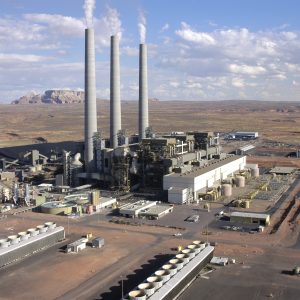The Stream, February 23: Arsenic Tolerance Found in Desert Communities
The Global Rundown
Some communities, such as those living in Chile’s Atacama desert, can better withstand high levels of arsenic in their drinking water, researchers found. Scientists discovered seven Earth-sized planets that could hold liquid water, and potentially life. Nigeria’s government enacted a curfew in areas of Kaduna state after conflicts over grazing land and water killed more than a dozen people. Lawmakers in California criticized the state government for failing to break ground on new water storage projects. Meanwhile, floods in the state forced thousands of people to evacuate San Jose.
“Incredibly, the 2014 Water Bond was passed three years ago but there still isn’t a single project listed on the state website to use the funds. It has been over two months since Proposition One money could be spent and still not one project is shovel ready.” –California state assemblyman Travis Allen criticizing Governor Jerry Brown for the state’s slow progress on building water storage projects. Voters approved a $7.45 billion water bond in 2014, $2.7 billion of which is slated for water storage, but that money has not yet been awarded to storage projects. (CNBC)
In context: Learn more about the questions surrounding water storage funding in Proposition 1.
By The Numbers
14 people Number killed during a conflict over grazing land and water in Nigeria’s Kaduna state. In response, the government implemented a 24-hour curfew in two areas near Kaura. Reuters
14,000 people Number evacuated from their homes in San Jose, California due to the area’s worst flooding in two decades. An additional, non-mandatory evacuation advisory affected 22,000 people. Reuters
Science, Studies, And Reports
Communities living in the Quebrada Camarones region of Chile’s Atacama desert have higher rates of an enzyme that allows them to better tolerate the arsenic in their drinking water, according to researchers at the University of Chile. Long-term arsenic exposure can cause cancer and other health problems, and high levels occur naturally in the water of the Camarones region. New Scientist
On The Radar
Seven newly discovered planets could have liquid water and the right climates to support life, according to a study published in the journal Nature. Scientists called the discovery a “crucial step toward finding (out) if there is life out there,” and in coming years plan to gauge the planets’ atmospheres for ozone, carbon dioxide, methane, and other gases found on Earth. USA Today
A news correspondent for Circle of Blue based out of Hawaii. She writes The Stream, Circle of Blue’s daily digest of international water news trends. Her interests include food security, ecology and the Great Lakes.
Contact Codi Kozacek





